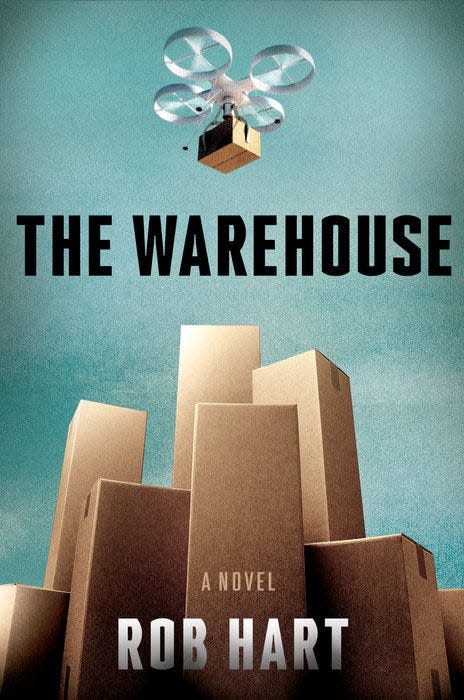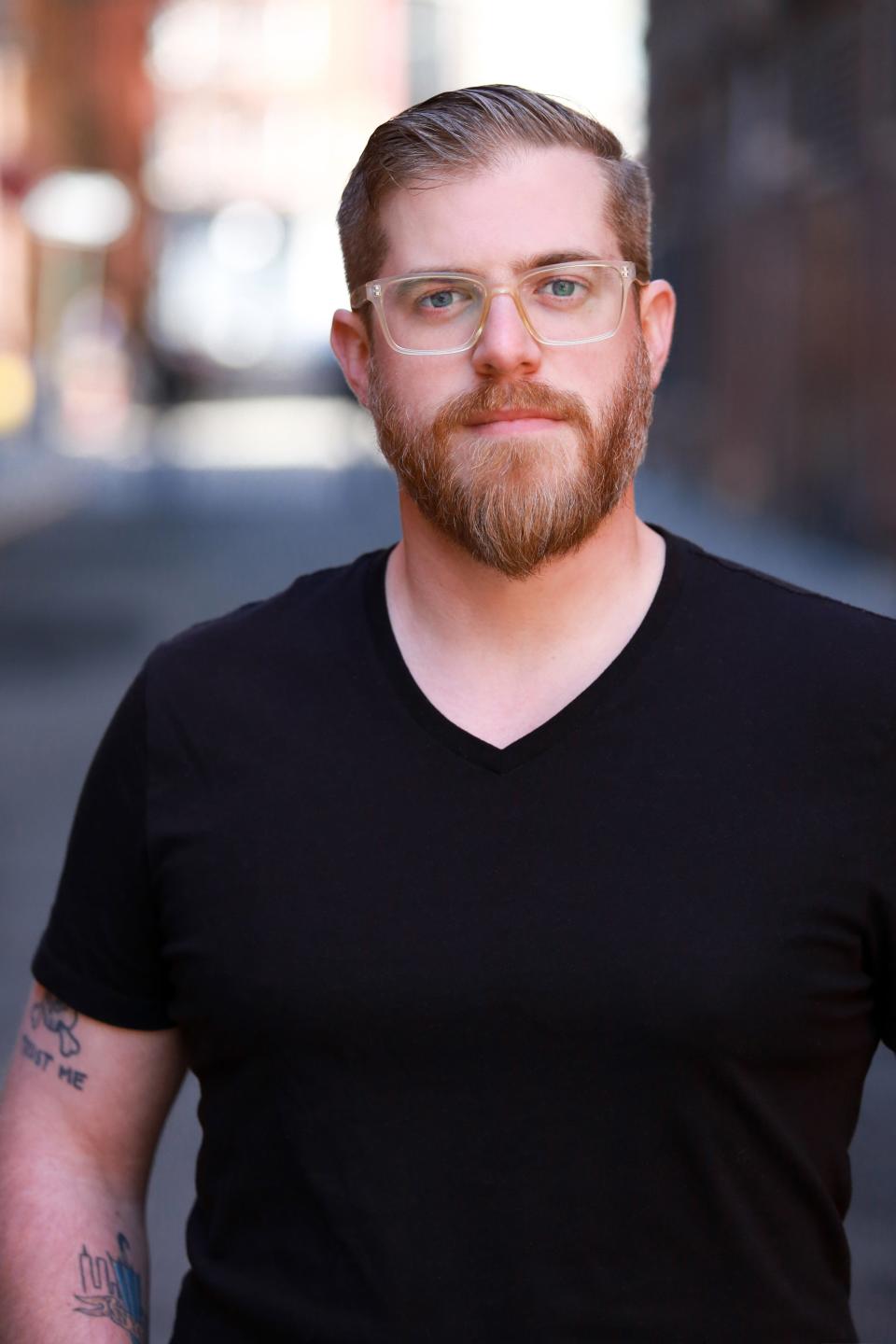Embrace the Cloud: Rob Hart chills with dystopian thriller ‘The Warehouse’

On Zinnia’s first day of work, fulfilling orders at a corporate mega-warehouse, she uses her precious 15-minute bathroom break to buy a pair of sneakers on her phone – from that very same employer. Easing her aching feet will mean improving her speed, and improved speed means a high enough rating that she won’t be fired. A desperate employee, using what little break time she has to funnel money back into the mother company: Welcome to the terrifying world of "The Warehouse" (Crown, 356 pp., ★★★ out of four stars).
In this near-future novel, a massive tech company, Amaz- whoops, I mean "Cloud," has become the corporate answer to government itself, bringing workers together in climate-controlled, carefully surveilled villages separated by hundreds of miles of sun-broiled wasteland. After the “Black Friday Massacres” brought an end to physical shopping, Cloud is one of the few employers left in the country, and scoring a job there also means submitting to its rules and relocating to a MotherCloud facility.
Zinnia’s hardly a naive cog in this machine, however: turns out she’s actually a corporate spy hoping to hack into Cloud’s highly guarded data networks. To that end she befriends Paxton, a one-time entrepreneur whose company was destroyed by Cloud’s predatory business practices, who is now working there as a security guard. The two come together and manage to find a connection, even as they unravel the dark side of a business monopoly that makes it impossible to consider shopping anywhere else.
More: Téa Obreht follows up 'The Tiger's Wife' with 'Inland' a haunted, fantastical Western
"The Warehouse" is a thriller of ideas, and its interplay of taut action and incisive cultural commentary gives it shades of "Fahrenheit 451" and "Jurassic Park." The storyline isn’t nearly as exciting as Crichton’s was – in fact, for stretches it’s downright slow, and could have done with some trimming – but Hart makes up for that with his deep character work. The Warehouse creates layers of meaning out of the discrepancy between a character’s self-impression and how others see them. In chapters told from Paxton’s point of view, for example, we can witness the start of a rapturous romance, only to be cut down once we discover Zinnia’s impression of him: “He was sweet, and eager to please, like a puppy.”

Hart’s greatest creation is Gibson Wells, Cloud’s founder. He might be the richest man in America, but that wealth can’t stop him from dying of stage-four pancreatic cancer. Wells speaks directly to the reader about his quest to find a successor, and the earnest philosophy that eventually led to his founding a corporate behemoth now crushing millions of American workers. It would have been easy to make Wells into a cartoonish villain, but instead he comes through as likeable and intermittently modest. Hart drew from the autobiography of Sam Walton, the founder of Walmart, to create the character, and said he was intrigued by “this incredible dichotomy between his aw-shucks, family-oriented attitude and the work environment he created.”
More: Your memoir reading list: 'Educated' and five others that humble and inspire
When "The Warehouse" lives in this dissonance between good intentions and corporate desolation, it really shines. Hart creates a fully believable surveillance state born of the tracking of online purchases, and captures the dehumanization that follows when humans can receive star ratings just as easily as a teakettle (or a book). But Hart doesn’t quite turn scolding; he never loses sight of what makes tech seductive, its instant feedback and drone-delivered convenience.
In the ominous words of Wells: “Cloud is the solution to every need.”
This article originally appeared on USA TODAY: Rob Hart chills with dystopian thriller ‘The Warehouse’

